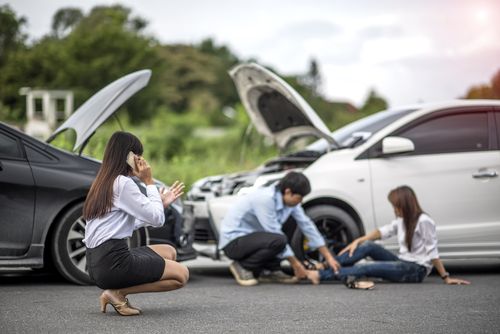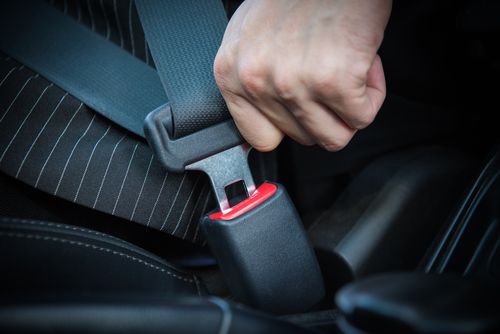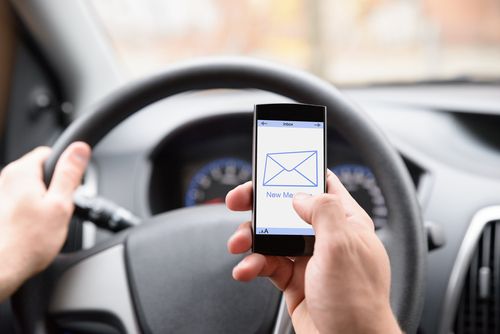Maybe your own car was in the shop, or you needed to move some furniture with your friend’s truck. For whatever reason, you were driving your friend’s vehicle and got into an accident.
Who is liable in this situation? Is it your friend who owns the vehicle? Is it you because you were driving the vehicle? Could it even be another party?
Circumstances like this bring up a lot of unanswered and murky questions. The good news is that a knowledgeable car accident attorney has the education and experience to provide you with clear answers. This way, you can move forward, taking the best steps possible.
Determining Car Accident Liability
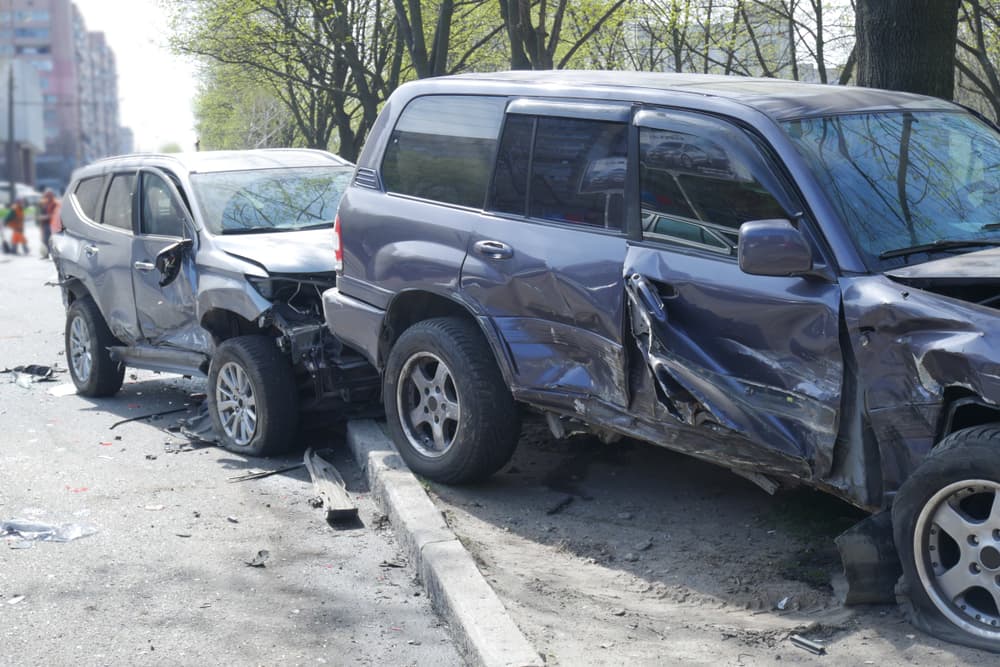
The term “liability” in the context of a car accident means the legal obligation to compensate a victim for the injuries and losses they incurred from the incident. This obligation is typically rooted in the law or a contractual agreement, including an insurance policy.
Establishing Fault in a Car Accident
Establishing fault for an accident involves applying various legal principles, primarily focusing on identifying the party responsible for the collision, who is typically financially accountable for resulting injuries.
Negligence is the common principle of fault in car accident cases, requiring victims to prove:
- A duty of care owed by one party to another, requiring them to refrain from unreasonably dangerous actions behind the wheel.
- Breach of this duty by engaging in actions deemed unreasonably dangerous, thereby endangering others.
- Resulting injuries caused by the breach of duty
- Financial compensation or other legal remedies owed to the injured victim
For example, negligence in a car accident context may arise when a driver engages in reckless behavior like speeding or driving under the influence. In such cases, the law deems the driver negligent, obligating them to compensate the victims financially.
In addition to negligence, fault for an accident can stem from:
- Intentionally harmful behaviors, such as drunk driving or road rage.
- The manufacture or sale of defective automotive products, such as brake pads or airbags.
- Providing alcohol to a minor or, in certain states, an already intoxicated person, leading to a drunk driving accident.
Legal accountability for another party’s fault in an accident may extend to individuals beyond the directly responsible party. Two fundamental legal principles—vicarious liability and negligent entrustment—dictate when and how this extension of responsibility can occur.
Legal Responsibility for Another Party’s Actions
Vicarious liability is a legal principle that enforces strict liability on a third party for the wrongful actions committed by another. In car accident scenarios, vicarious liability commonly comes into play when an employee operates a vehicle owned by their employer.
If the employee’s actions while driving result in an accident, the employer may be liable under the framework of vicarious liability, permitting accident victims to seek financial compensation directly from the employer.
Across most U.S. states, vehicle owners bear vicarious liability for the negligent actions of a driver only if the driver is deemed an agent or employee of the owner. An exception exists in Florida, where vicarious liability extends to all vehicle owners, regardless of their relationship with the driver responsible for the accident.
Another legal doctrine, negligent entrustment, holds an owner accountable if they knowingly permit someone with a history of poor driving or insufficient driving skills to use their vehicle.
If the driver, under these circumstances, causes an accident with the owner’s vehicle, this doctrine establishes legal liability for the owner. This may apply if an inexperienced teenage driver injures someone. In that case, you might hold the teen’s parents liable under negligent entrustment.
Contracts to Assume Responsibility in a Car Accident, AKA Insurance
Beyond their legal obligations, individuals, businesses, and other entities can enter into contractual agreements to willingly accept responsibility for potential car accidents.
The most common manifestation of such agreements is insurance policies, where an insurance company agrees to handle its policyholder’s liability if they cause a future car accident. This arrangement consists of the policyholder making a one-time or periodic payment to the insurer, known as a premium.
In the United States, virtually every driver must have auto insurance to operate a vehicle legally. State laws vary, specifying the type and amount of insurance drivers must carry. There is a consistent requirement for all drivers to possess liability insurance, which covers damages they may cause in an accident that harms someone else.
Some states take it further by requiring drivers to obtain no-fault insurance, also known as personal injury protection (PIP) coverage. This coverage protects a driver against their own injuries and losses in an accident, no matter who is at fault.
In these states, a victim’s no-fault coverage becomes the primary payment source for damages related to the accident. Typically, unless the victim sustains severe injuries exceeding the amount of their no-fault coverage, pursuing compensation from the at-fault party’s auto liability insurance is not a viable option.
Who Is Responsible if the At-Fault Driver is Not the Owner of the Car?
When a motorist causes an accident while operating a vehicle they don’t own, the interplay of the three general principles mentioned above will determine whether the owner, the driver, both, or another party is liable to the crash victims.
An experienced car accident lawyer will typically analyze liability in such a scenario as follows:
As previously mentioned, the general rule is that an at-fault driver causing an accident due to negligence or other blameworthy conduct will have legal liability to the crash victims. These victims generally have the right to pursue legal action against the motorist for monetary damages unless they reside in a no-fault insurance state and their own no-fault insurance covers all their injuries and losses.
Subsequently, if the vehicle owner is the driver’s employer and allowed the driver to use the car, knowing their dangerous or incompetent driving behavior, or if the accident occurred in Florida, the owner will also likely be legally liable to the crash victims.
Lastly, depending on the types and amounts of insurance coverage the driver has, victims, and owner, and the state laws governing the rights and obligations of the parties involved, one or more insurance carriers may have a contractual obligation to provide financial compensation to the victims on behalf of the legally liable party.
What if the Vehicle is Stolen or Driven Without the Owner’s Knowledge?
When a driver operates a car without the owner’s knowledge and is part of an accident, the owner’s legal liability to a crash victim may persist based on the circumstances.
The crucial determinant is whether the driver had explicit or implicit permission from the owner to use the car.
If they gave permission, the owner can be responsible for damages to the crash victims. Conversely, the owner typically will not incur liability if the driver stole the vehicle without permission.
What if a Car Rental Agency Owns the Vehicle?
In general, car rental agencies aren’t typically accountable for damages resulting from car accidents when someone causes a collision while driving a rental car.
In most cases, the responsibility for providing financial compensation to those affected by the accident lies with the at-fault driver in the rental car and their liability insurance policy (including any additional insurance purchased during the rental).
However, certain exceptions exist. However, rental car agencies, like any vehicle owner, may face liability if they knowingly rent to an unqualified or unsafe motorist. Furthermore, rental agencies can be held accountable for accidents caused by their employees while driving a company car.
Additionally, the law in many states might independently attribute fault to a rental agency for an accident if they rent out a defective or inadequately maintained car that crashes due to being unsafe to drive.
How Much Is a Car Accident Injury Claim Worth?
The value of a car accident injury claim varies widely and depends on several factors. Each case is unique, and the compensation amount depends on the specific circumstances.
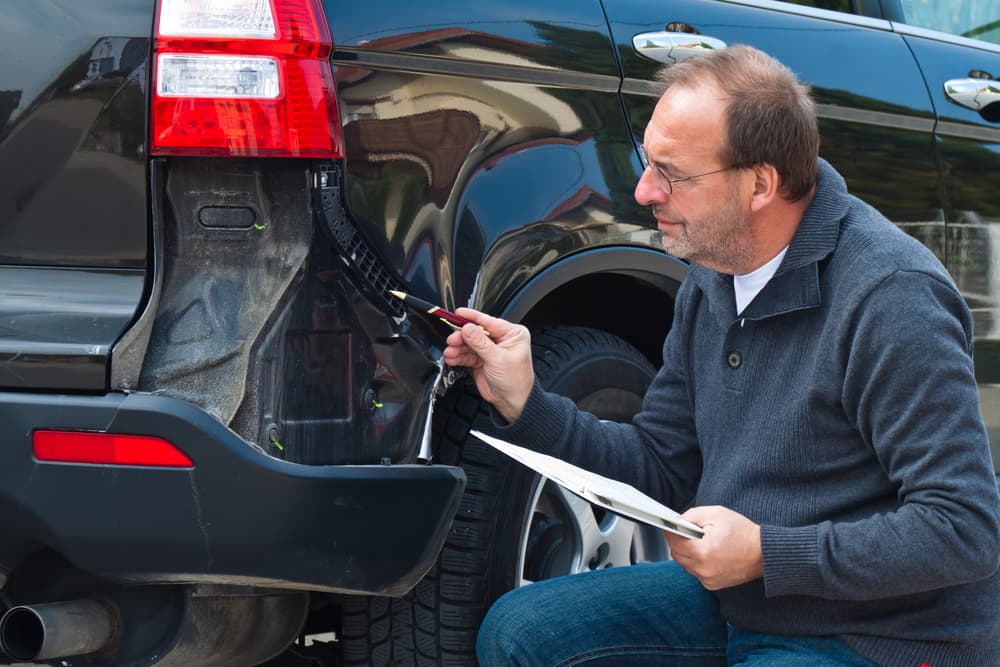
Several key factors that can affect the worth of a car accident injury claim include:
- Severity of Injuries: The extent and severity of the injuries sustained in the accident play a significant role. Severe injuries that lead to long-term disability or extensive medical treatment often result in higher compensation.
- Damages: Economic and non-economic damages, including medical expenses, lost income, property damage, and pain and suffering.
- Insurance Policy Limits: The at-fault party’s insurance policy limits can affect the maximum amount victims can recover. If the responsible party has limited insurance coverage, it may limit the overall compensation available.
- Legal Representation: A skilled personal injury attorney can affect the outcome of a claim. Attorneys may negotiate effectively, ensuring they consider all relevant factors and losses when determining the compensation amount.
Given the complexity of these factors, consult a personal injury attorney who can assess the specifics of the case, gather evidence, and provide a more accurate estimate of the potential value of a car accident injury claim.
Types of Damages in a Car Accident
After a car accident, victims often face many unfortunate challenges, including physical injuries, emotional distress, and financial burdens.
To address these difficulties, the legal system allows victims to seek compensation through a car accident claim. Compensation typically covers various types of damages, reflecting the many costly effects a crash can have on an individual’s life.
They may include:
- Medical Expenses: One of the most common categories of car accident damages is medical expenses. This includes all medical care and treatment costs, such as emergency and hospital expenses, surgeries, medications, rehabilitation, and ongoing medical care. Victims can pursue compensation for past, current, and future accident-related medical expenses.
- Lost Income and Earning Capacity: Car accidents can result in injuries that prevent victims from working, leading to lost income. Compensation may include reimbursement for the income lost during the recovery period. Additionally, suppose the injuries result in a permanent disability affecting the victim’s ability to earn in the future. In that case, they can seek damages for future lost earning capacity.
- Property Damage: Damage to the vehicle and personal belongings in the car during the accident is another category of damages. Compensation may cover the costs of repairing or replacing the vehicle and any valuable items, such as jewelry or cell phones, damaged in the collision.
- Pain and Suffering: Non-economic damages, such as physical pain, emotional distress, and loss of enjoyment of life, are challenging to quantify but are crucial components of a car accident claim. Financial recovery for pain and suffering aims to address the intangible hardships experienced by the victim due to the accident.
- Loss of Consortium: This type of damage applies to the effect of the accident on the victim’s relationships. Loss of consortium compensation may be sought by the spouse or family members, addressing the loss of companionship, support, and intimacy resulting from the victim’s injuries.
- Punitive Damages: In rare instances where the at-fault party’s conduct is particularly egregious, punitive damages may be available. These damages aim to punish the wrongdoer and deter similar behavior in the future.
Understanding the various types of damages is crucial when navigating the legal process following a car accident.
Victims should always seek legal representation to ensure a comprehensive assessment of damages and pursue just compensation that reflects the accident’s full impact on their lives.
Anyone with injuries from a recent car accident should contact an attorney for help as soon as possible, no matter whose cars were involved.
Seeking Your Free Case Evaluation With a Car Accident Attorney

Never wait to seek the advice and representation of a skilled car accident attorney after you suffer injuries. While you may be hesitant about the prospect of engaging legal help, understanding the benefits of a free case evaluation can help you make an informed decision.
A free case evaluation provides an opportunity to consult with an experienced personal injury lawyer who knows personal injury law. During this initial consultation, you’ll have the chance to discuss the details of your accident, ask questions, and receive valuable insights about your legal options.
One of the main advantages of seeking a free case evaluation is that it allows you to gain a better understanding of the strengths and weaknesses of your case. The attorney will carefully review the evidence, such as police reports, witness statements, and medical records, to assess the viability of your claim. This evaluation will help you determine whether pursuing legal action is in your best interest.
Seek your consultation today with a car accident lawyer near you.

